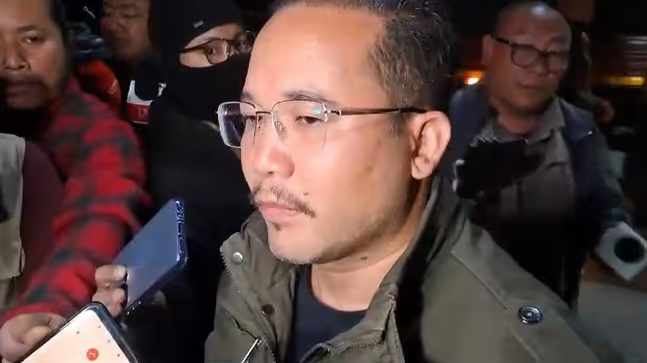In a crucial development amid the ongoing ethnic conflict in Manipur, members of the Arambai Tenggol met with Governor Ajay Kumar Bhalla on February 25, 2025, at Raj Bhavan, urging the fulfillment of key demands to restore peace and stability in the state. The delegation submitted a memorandum highlighting their concerns and expectations, including immunity for village volunteers from legal action, border security measures, and action against illegal immigration.
Governor Assures Action on Arms Surrender and Highway Reopening
Following the hour-long discussion, Arambai Tenggol’s PRO Robin Mangang Khwairakpam addressed the media, stating that Governor Bhalla had assured them of reopening national highways and restoring normalcy in the state. However, this assurance was contingent on the completion of the ongoing arms surrender process, a crucial step in the state’s peace-building efforts.
While the governor’s commitment was seen as a positive step, the Arambai Tenggol delegation outlined their conditions before any further action, emphasizing the need to safeguard Meitei/Meetei interests and maintain the region’s security.
Key Demands of Arambai Tenggol
The memorandum submitted by Arambai Tenggol addressed various socio-political and security concerns arising from the prolonged ethnic unrest, which began on May 3, 2023. The group insisted that the ongoing ethnic conflict, which has led to large-scale displacement and loss of life, must be resolved with concrete government action.
The demands put forth by Arambai Tenggol included:
1. Strengthening Border Security
- Border fencing to prevent infiltration and illegal migration.
- Implementation of the National Register of Citizens (NRC) using 1951 as the base year to identify and filter out illegal immigrants.
- Deportation of all illegal immigrants to their respective native places.
2. Action Against Armed Groups and Drug Cartels
- Abrogation of the Suspension of Operations (SoO) agreement with militant groups violating the peace agreement.
- Strict action against SoO-violating militants to ensure law and order.
- Complete eradication of poppy cultivation, which is often linked to insurgent funding and drug-related violence in the state.
3. Protection of Meitei/Meetei Identity
- Withdrawal of Scheduled Tribe (ST) status granted to illegal immigrants.
- Restoration of ST status for the Meitei/Meetei community, ensuring constitutional safeguards for their rights.
- Amendment of the MLR & LR Act, 1960, ensuring equal implementation in both hill and valley regions.
4. Legal Immunity for Village Volunteers
One of the most crucial demands in the memorandum was a blanket immunity for village volunteers, including Arambai Tenggol members. The group stated that these volunteers had been instrumental in protecting their communities during the ethnic violence and should not face legal prosecution. Their demand includes:
- No arrests or legal action against village volunteers by any Commission, Tribunal, or Court.
- Recognition of their role in safeguarding communities during the conflict.
Implications of Arambai Tenggol’s Demands
The memorandum underscores the widening trust deficit between the community and the government. Arambai Tenggol’s demands reflect long-standing concerns regarding illegal immigration, ethnic identity, and internal security in Manipur. The demand for immunity for village volunteers is particularly contentious, as it raises questions about accountability, law enforcement, and the rule of law.
Additionally, the push for NRC implementation and border fencing highlights the group’s apprehension about demographic shifts and the preservation of indigenous identity. The conflict over ST status has also been a major point of contention between the Meitei and tribal communities, further complicating the ethnic dynamics in the state.
Robin Mangang Khwairakpam stated that further details of the meeting would be disclosed later, indicating that negotiations between the group and the government are still ongoing. The promise of reopening national highways could bring much-needed relief to Manipur, which has faced economic disruptions due to frequent blockades. However, it remains to be seen whether the government will accept or modify the group’s demands.
With tensions still high, the coming weeks will be crucial in determining the next course of action regarding ethnic reconciliation, security measures, and the legal standing of village volunteers. The government’s response to Arambai Tenggol’s demands will likely set a precedent for future negotiations with various community groups in the region.
The meeting between Arambai Tenggol and Governor Ajay Kumar Bhalla marks an important step in Manipur’s ongoing conflict resolution efforts. While the promise of highway reopening is a positive sign, the group’s demand for immunity and stringent immigration policies adds a complex layer to the peace-building process.
As discussions continue, it remains crucial for both the government and community representatives to find a balanced approach that ensures security, respects ethnic identities, and upholds the rule of law in Manipur. The coming weeks will determine whether these demands lead to constructive dialogue or further deepen the existing divide in the state.




